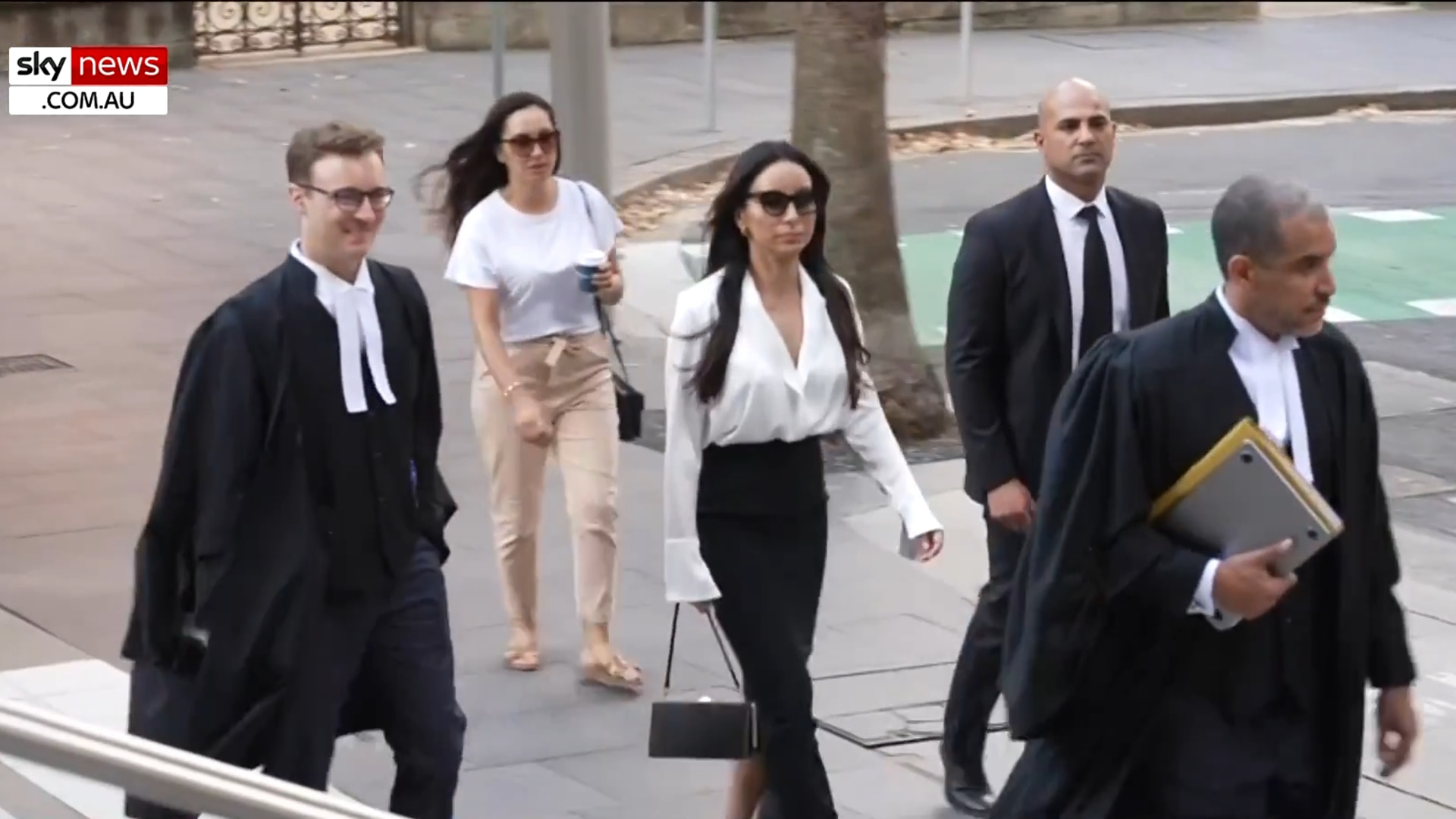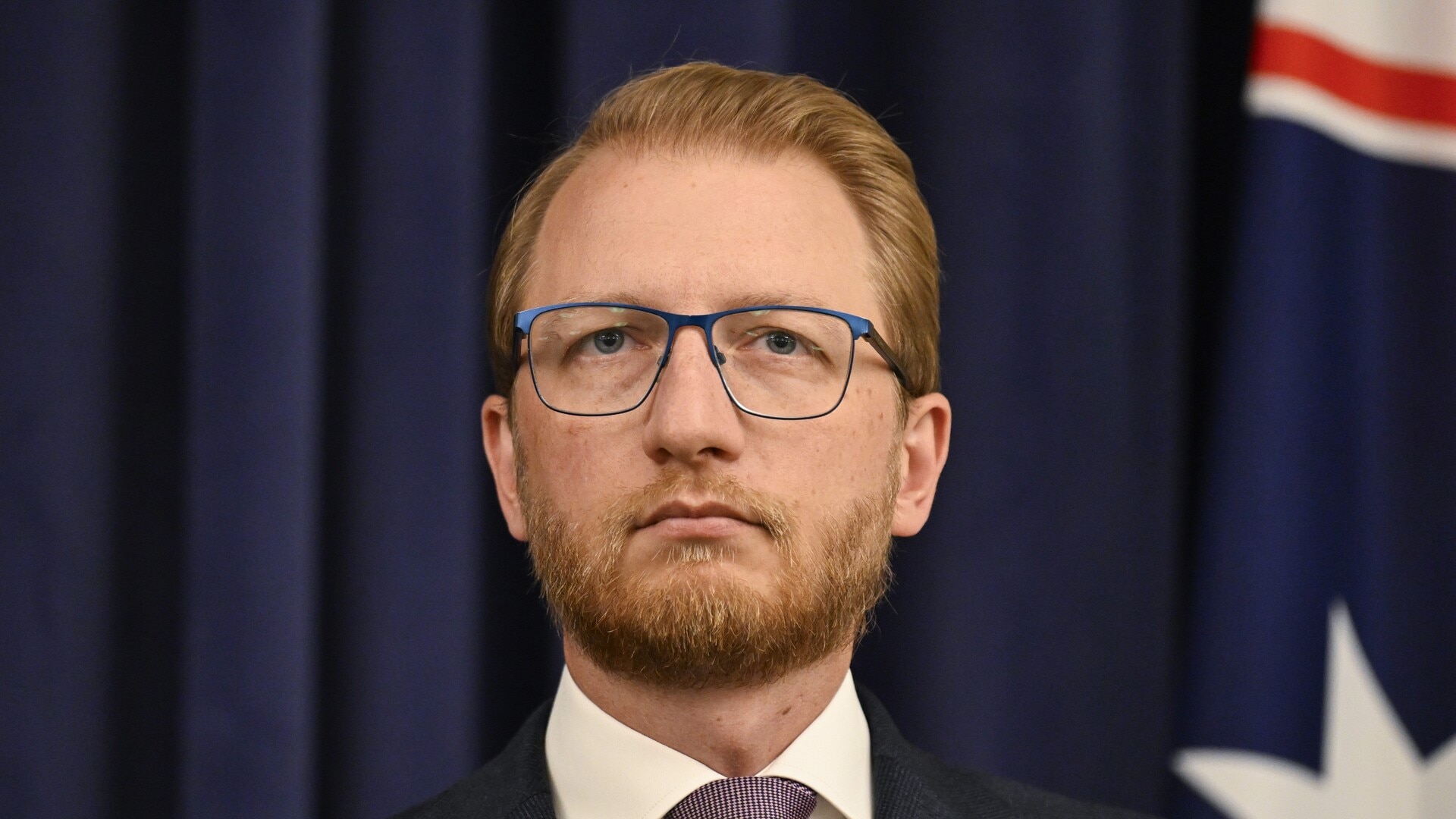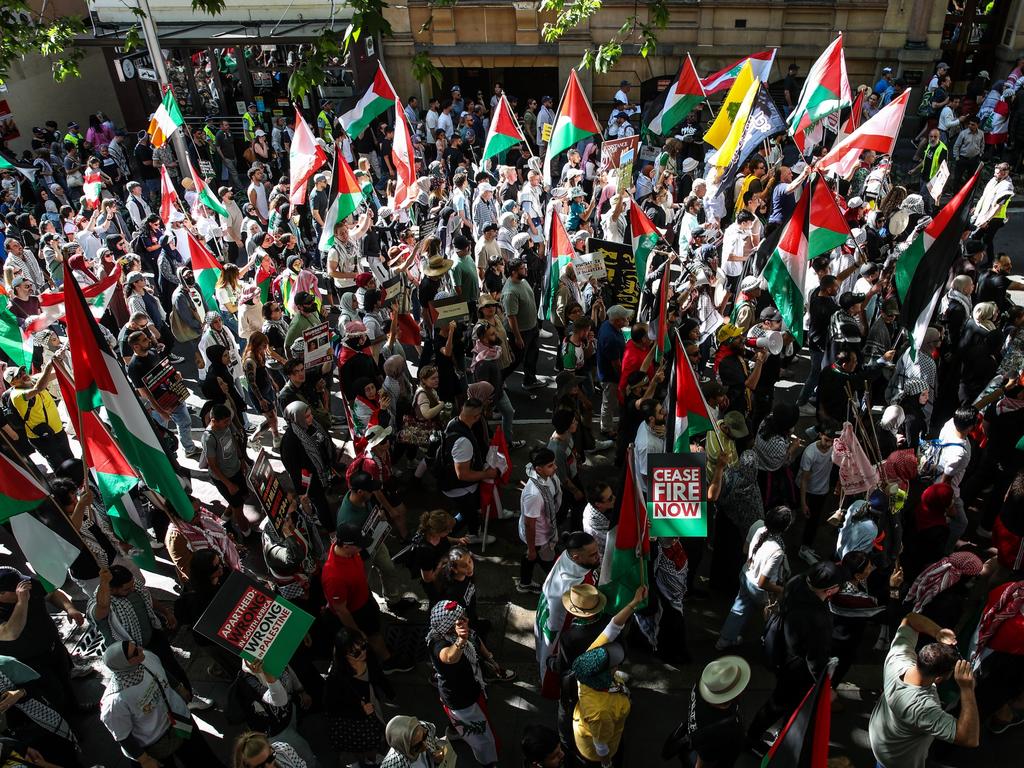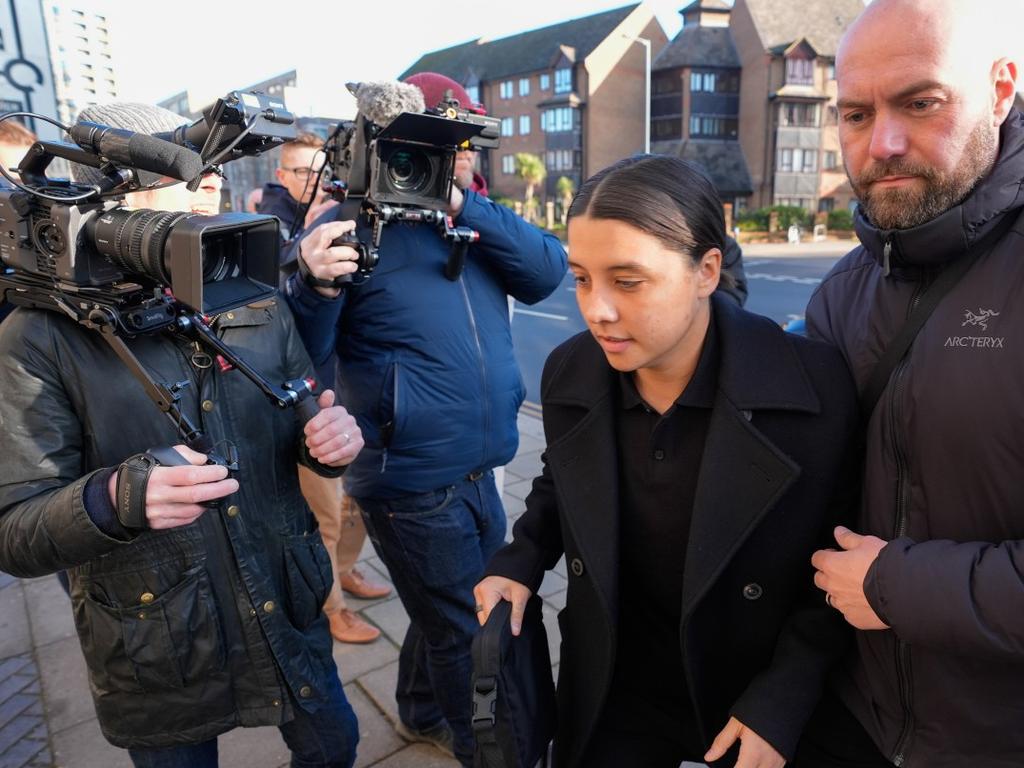Sam Kerr’s foolishness should have gone nowhere near court, but our PM took too long
Two women. Two court cases. Each much ado about nothing. But there is a bigger tale here about a plodding prime minister who took too long to intervene.

While the Matildas’ star striker and the freelance journalist attract headlines, there is another story about a plodding prime minister who took too long to strengthen laws that police need to prosecute those who incite violence.
The three stories are connected. They concern what we can and cannot say in a free and democratic country. The story about the Prime Minister deserves by far the most attention. Alas, we in the West obsess more about hurt feelings and workplace codes of conduct than we do about the basic right of people to be safe from threats of violence.
Let’s dispose of Kerr’s troubles quickly. The 31-year-old soccer player behaved stupidly if it’s true that on three occasions she called the policeman “f..king stupid and white”. She was drunk. She’d vomited in a cab. Caused damage. The copper was just doing his job.
She was a fool, too, to bang on about “white privilege”. It’s hard to miss the irony in a fabulously wealthy, global footballing superstar accusing a suburban English police bobby of “white privilege”, as she is alleged to have done.
Just as Kerr might have been upset if someone called her stupid and made some slur about her Anglo-lndian heritage, the policeman was entitled to object to Kerr sledging him for being white. He may well have felt humiliated and distressed.
But so what?
Kerr’s language (as distinct from damage done to the cab) shouldn’t be anywhere near a courtroom. The soccer star’s trashy outbursts should be regarded as nothing more than the messier side of a democracy. In a free country, we shouldn’t be criminalising speech that is simply offensive. If the right to free speech doesn’t protect words some might think offensive, it’s a useless right – little more than a right to be nice, banal. Indeed, a state that criminalises words that merely offend is far more dangerous to our health than hearing a few nasty words.
Instead, Kerr should be judged by the court of public opinion. Her reputation has taken a self-inflicted hit. She’s not quite the role model she was before her foul-mouthed outburst. That should be the end of the story.
Unfortunately, it’s not. Hate speech and hate crimes have become hopelessly entangled with disastrous consequences: we (and the British) have ended up with laws that attach legal consequences to hurt feelings, such as section 18C of our Racial Discrimination Act and its British counterpart.

The good intentions behind such laws have produced nothing good. Once we attached legal consequences to hurt feelings for some groups of people, the laws turbocharged identity politics, victimhood and cancel culture. As Kerr’s trial may demonstrate, feelings may trump freedom of expression. Worse, debates about hate speech have confounded necessary reforms to strengthen laws aimed at catching people who incite violence. More on that in a moment.
As for the ABC’s “Antoinette problem”, this is an even sillier storm in a taxpayer-funded teacup. Emails read out in the Federal Court from a senior ABC manager said that, “As part of our diversity policy, a number of future ABC presenters were identified … Antoinette was one of them.” Red flags appeared on day one of her five-day presenting role, the court heard.
Those who work at the ABC have a legal duty to be impartial in their work. There were reportedly complaints about her impartiality given her social media posts. Am I crazy to think that everyone seems to have overreacted here? Those who complained to ABC chair Ita Buttrose were entitled to ask whether Lattouf had breached the ABC Charter and its Code of Conduct. But the ABC tolerates much more egregious breaches without sacking the offenders. Maybe Lattouf’s social media post was offensive, but did Buttrose need to suggest Lattouf come down with Covid or a cold to get her off the air? Did senior managers need to give her the boot? And in the interests of an even-handed denunciation of overreactions, did Lattouf need to lob an extra allegation that she was unfairly dismissed on the basis of her race, when arguably she had been unfairly appointed on the basis of her race?
Jiminy Crickets, mug taxpayers are paying for this litigious mess one way or another.
Instead of hyperventilating over hurt feelings and codes of conduct, can we please concentrate on words that need to be criminalised? Where’s our laser-like focus on words that incited violence. Not on who insulted whom in the playground.
Don’t confuse hate speech with hate crimes. Anti-Semitism is hate speech. But it shouldn’t be a crime. If we could focus on hate crimes where words incite violence, the country might have had more effective criminal laws – long before changes enacted this week in federal parliament.
The Criminal Code was crying out for reform. It only applied to a person who intended that their words would lead to violence. It should catch anyone who is reckless as to whether their words incite violence. The code provided a weird defence, allowing people to incite violence if it’s done in “good faith”. That was nuts.

Finally, the Albanese government has passed two simple and important reforms – lowering the fault element and removing that dumb defence – to help police charge people who incite violence.
The critical question is why the Prime Minister dithered while parts of Australia burned from anti-Semitic words that incited violence.
The Albanese government had other priorities. Over the three-month period from August to November last year, the federal parliament passed new laws to amend the Competition and Consumer Act, the Australian Education Act, the Customs Tariff Act, the Midwife Professional Indemnity (Commonwealth Contribution) Scheme Act, the Sydney Airport Demand Management Act, the Privacy Act, the Aged Care Act, the Ombudsman Act, the Family Law Act.
The critical changes to the Criminal Code Amendment (Hate Crimes) Bill were introduced into parliament by the Albanese government in September. Then put on the backburner. Sent off to a committee. Delay. Consultations. Delay. Reports. Delay. Summer holidays. Delay.
Meanwhile, attacks on the Jewish community soared. In November last year a car was set on fire, and 10 cars and celebrity chef Matt Moran’s Chiswick restaurant were vandalised with the words “F..k Israel” and “PKK coming” in Sydney’s eastern suburbs.
These words won’t impact the continued existence of a country thousands of kilometres away. But these same words can very likely incite violence against Jewish people in Australia.
Two weeks later, on December 6 at approximately 4.10am local time, an arson terrorist attack took place at the Adass Israel Synagogue of Melbourne in Ripponlea.
Days later, in Sydney’s east, home to many Australian Jews, another car was set alight and “F..k Israeil” (sic) was graffitied on a nearby property.
On January 19 this year, police found a caravan on the roadside in Dural, 30km from Sydney’s CBD, packed with Powergel, a mining explosive. The stash could have produced a 40m blast wave, although it was not wired to detonate.
On January 11, a synagogue in Sydney’s inner west was vandalised and sprayed with Nazi symbols. The alleged perpetrator is also alleged to have used an accelerant to try to set fire to the building.
On January 14, Sydney’s Sydenham train station was graffitied with “Gas the Jews”.
Liberal senator Paul Scarr told parliament on Tuesday that the two changes to the Criminal Code were “a no-brainer”, that they should have been enacted 18 months ago: “You cannot tell me that introducing any money laundering red tape on our real estate agents, lawyers and accountants was more important than protecting our Jewish community in the face of this torrent of anti-Semitism. Was it more important to introduce the statutory tort of privacy, which has been kicking around for over a decade, than it was to protect our Jewish community? Was it more important to introduce amendments to the Family Law Act dealing with the custody of pets than it was to protect our Jewish community?”
Why didn’t the Prime Minister get the ball rolling sooner and make these changes a legislative priority? These are matters of national security. The government managed to enact entirely new legal frameworks – think the new Administrative Review Tribunal, the new Cyber Security Act, the new Future Made in Australia regime. But two simple changes to the Criminal Code sat idle.
Unfortunately, debate about changes to the Criminal Code was bogged down by those who want to conflate hate speech with incitement to violence. Groups including the Australian Sex Workers Association, the Human Rights Law Centre, and the Jewish lobby – the Executive Council of Australian Jewry – demanded that changes to the Criminal Code go further and criminalise speech that vilifies.
The Attorney-General’s department sensibly pushed back. Brooke Hartigan, First Assistant Secretary, Security and Counter-Terrorism Division, from the department told the Senate committee in December that “The offences (in the Criminal Code) are not intended to capture mere expressions of opinion or belief, however hateful or reprehensible. This bill is intended to target the most serious forms of hate speech – namely, the urging or threatening of force or violence against groups.”
It would be a terrible shame if those who wanted to criminalise lesser forms of hate speech held up reforms to incitement to violence.
On Tuesday, with parliament returning, the PM declared anti-Semitism has “no place in our nation”. You don’t say. And finally, on Thursday, the Criminal Code was strengthened to enable police to prosecute those who incite violence in the future.
The only saving grace from Albanese’s delay is that the Criminal Code now includes a new offence, proposed by the opposition, to catch those who advocate the causing of damage to places of worship, and other property, along with mandatory minimum sentences.
These don’t explain the government’s dithering. It was more important that the Albanese government move responsibly to quickly lower the fault element to recklessness and abolish the nonsensical “good faith” defence.
While those two changes languished, perpetrators escaped prosecution. What on earth took the Prime Minister so long?







Two women. Two court cases. Each much ado about nothing. Soccer star Sam Kerr was on trial this week in a south London court for calling a British policeman “f..king stupid and white”. Journalist Antoinette Lattouf was in a Sydney courtroom for her unfair dismissal claim against the ABC. She says she was told her stand-in role was terminated because of her social media posts.